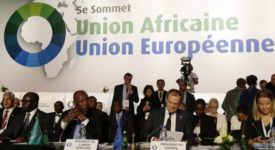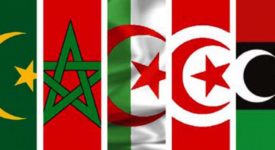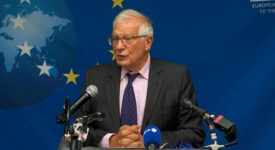The recent idea of the European Parliament to create a European Monetary Fund (EMF) might sound a bit farfetched at first sight. The European Union is as abundant in a variety of its organizations and institutions as it is in its bureaucratic¬ practices. If we disregard political institutions, not only has Europe its Frankfurt-based central bank, but there is also the European Bank for Reconstruction and Development (EBRD) seated in London, the European Investment Bank with headquarters in Luxembourg, and also numerous economic programs under auspices of the EU Commission, Parliament itself plus a myriad of ad-hoc working groups. To an average observer, the web of institutions must prove absolutely chaotic and disorganized, but Brussels might seem to somewhat enjoy its growing institutional playground.
On the other hand, the recent economic and financial crisis had left EU countries macro-economically rather ill-prepared. The kind of problems that had to be tackled by the EU’s institutions resembled more the environment that the International Monetary Fund (IMF) had to face during numerous crises in the emerging and developing countries throughout the 1980s and 1990s. The Union’s macroeconomic toolkit was scarcely equipped with ideas how to deal with a fall of the Greek economy ensued by its government-debt crisis, which subsequently caused an avalanche throughout Southern Europe. Therefore, it looked only reasonable that the IMF was asked to help out and its efforts later naturally joined with the work of the EU Commission – the EU’s overarching organization – and the European Central Bank (ECB).
The IMF has unfortunately notorious reputation and no matter how many (or few) mistakes were made during its European bail-out program, the organization would likely be criticized in any case. But who could have been called out for help when the South of Europe was falling apart? The ECB’s primary objective is to keep price stability and as such the bank is skilful at manipulating its interest rates. It also supervises the European monetary system but it definitely did not have much experience with bailing out economies. Who would expect that such experience could be actually handy in the rich eurozone? The EU Commission served as an executive body and naturally because it is simply involved in everything. A macroeconomic institution like the IMF was missing and the odds might be such that Europe may need one in the future.
A single country does not usually need much more than its central bank. The central bank does economic research, keeps an eye on the level of inflation, and supervises the financial system. If the government is in trouble, a bank saves the day – or not – and life goes on. In the system of mutually interdependent economies, just like the eurozone, such a life might not be enough. When the troubles of Southern Europe surfaced, many of the remaining euro countries were in a relatively good economic shape given the global conditions of the day. Therefore, the ECB found it hard to intervene in the sovereign debt crisis as its policy is binding for the entire eurozone. A policy that would have benefited Greece at that time, could have hurt another euro economy and vice versa. Therefore, a bail-out system of the IMF-led Troika emerged and has been with us until today.
The IMF is based on the system of quotas that are meant to raise funds for potential bail-outs and loans of any kind. Each member is assigned a quota according to the weight of a particular country in the world economy. Unfortunately for the smallest and poorest ones, the quota also pins down voting power but this is another story. Imagine a version of IMF in Europe. Imagine a eurozone-wide organization that would be fully in charge of the surveillance of the eurozone economy, macro research and reform proposals. Each eurozone country would contribute into an “anti-bail-out aid package” based on its weight in the currency block and so would the voting. In this way, countries like Germany and France could push for more “European-like” conditionalities and reforms in case of a bail-out. This would be very good because what is being criticized in the work of IMF is precisely the lack a “human touch” when imposing its loan conditions on crisis-battered countries.
The European Union would be one organization richer, but a “European IMF” could combine a number of working groups in one, get rid of the European Financial Stabilization Mechanism and unite all other similar platforms under one roof. Moreover, the eurozone would at the same time establish a centre of united macroeconomic research and policy making. Moreover, a European way of combining the quest for economic growth with sustainable development and social considerations could end up being the main driver of the EMF project.
Article Categories:
ECONOMY & TRADE






